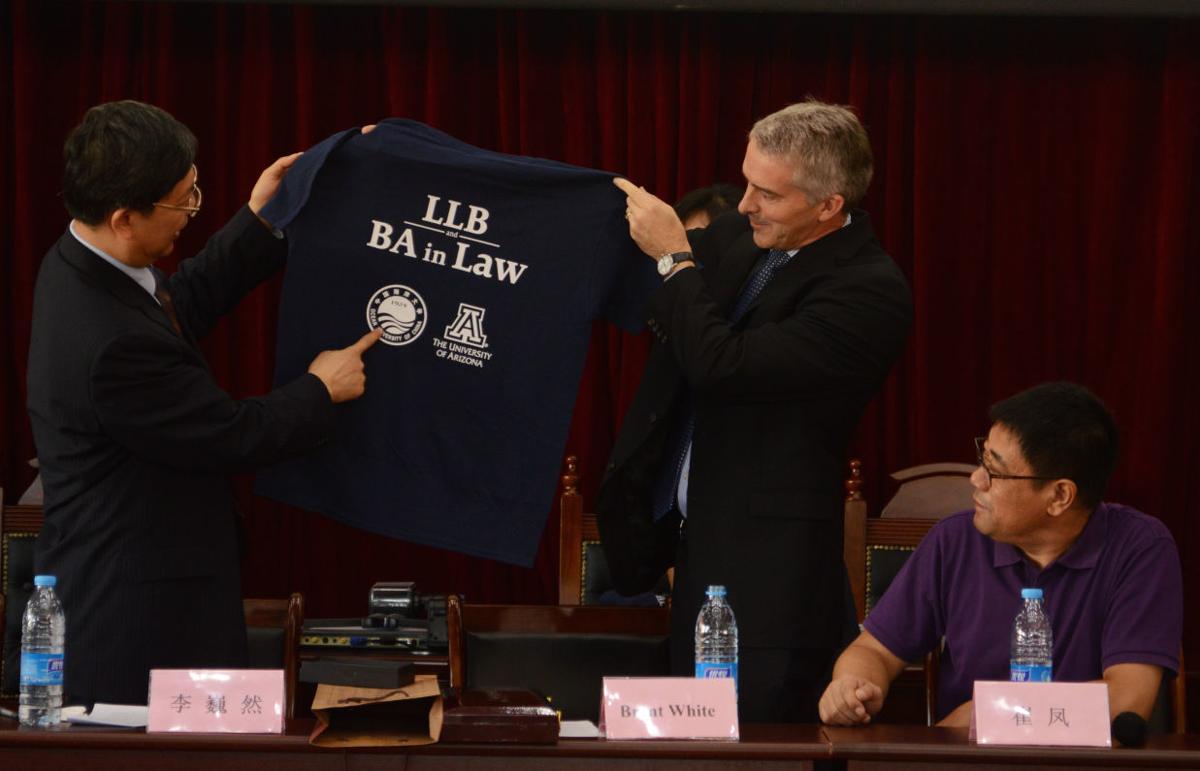The UA graduated nearly 80 students this summer, but not in Tucson.
The 77 students graduated from the UA in Qingdao, China, as part of the university’s first micro-campus program created overseas.
The students earned two undergraduate degrees: a bachelor’s of arts in law from the UA and a bachelor’s of laws from Ocean University of China, the local school where they attended.
The commencement marked the first four-year group of UA micro-campus students to graduate, according to a UA news release.
The program at Ocean University was the first micro-campus set up by the UA in 2015. Nearly 400 students have enrolled in the program since it began.
“This partnership was built on the belief that strong students could learn the fundamentals of both Chinese law and U.S. law in four years and in two languages,” said Marc Miller, dean of the UA James E. Rogers College of Law, in the news release. “Now, our graduates will share their unique knowledge, insight and skills with academic institutions and employers around the world.”
The program in Qingdao, a seaside city of about 10 million, was established as a partnership between Ocean University and the UA’s College of Law and the school of government and public policy in the College of Social and Behavioral Sciences.
At the micro-campus in Qingdao, UA professors specializing in law and English teach alongside their counterparts in China. Students can access UA resources and eventually join two alumni groups. Students at micro-campuses can attend classes entirely at their local school or transfer to study at the UA in Tucson.
Students in China receive instruction in Chinese and U.S. law and in both civil- and common-law systems. Upon graduation, students may practice law in China, though many opt to continue their legal studies abroad.
Several graduates of this inaugural class have received acceptance into top law schools in China, the United Kingdom, the United States and Australia to pursue graduate degrees.
In addition to the site in Qingdao, the UA operates micro-campuses in the United Arab Emirates, Jordan, Indonesia and Cambodia.
Sites are coming this year in China, Southeast Asia, Africa and South America.





